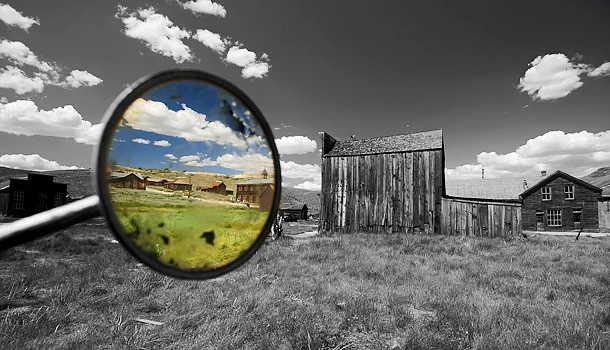
One day in December 1955, former President Harry Truman, who had been living in Independence, Missouri since leaving the White House in 1953, arrived home and found his wife Bess at the fireplace, burning a pile of his letters to her.
“Think of history,” he said. “I have,” she replied. And she let the letters continue to burn.
Today, we no longer have the option of burning our letters. Our digital tracks are everywhere–in email messages, tweets, text messages, social networking postings, and the visit histories of Internet sites. They are in the hands of family members, friends, acquaintances, current and former coworkers, people we barely remember, and people we prefer to forget. Our movements are logged through mobile devices, and our images are stored in the surveillance archives of retail stores, office buildings, taxis, and transit systems.
Most of us do not remember what we read online or wrote on March 9, 2011, or what clothes we wore that day. We don’t remember the phone calls we made or how long we talked, or whether we went to the grocery store, and if so, what we purchased there. But all of that information is archived, and if a pressing enough need were to arise, our activities on that day could be reconstructed in nearly complete detail.
Of course, the perils of an online world that remembers everything are well recognized. As Jeffrey Rosen wrote in a 2010 New York Times magazine article, “the worst thing you’ve done is often the first thing everyone knows about you.”
But there is another, more subtle aspect to the inexorable growth of digital archives that store not only the worst things we have done, but everything we have done. To the extent that the past helps define us, it does so not only in terms of our greatest public triumphs and failures, but also through the mundane actions and daily experiences that in the aggregate can be far more important.
In earlier times, those actions and experiences comprised a personal history accessible only to a small circle of people, and of which we were the main custodians. We were largely free to choose what to remember, and perhaps more crucially, what to forget.
Today, however, our personal history lies scattered throughout cyberspace. And, as illustrated by Facebook’s late-January decision to require all users to switch to Timeline, which will make it much easier to view the entire history of posts made on the site, we often have less control over that information than we might like to believe.
The prospect that companies to which we have entrusted our data can unilaterally choose to elevate the visibility of actions we took years in the past undermines an option to forget that has long been viewed by philosophers, psychiatrists, psychologists, and writers as critical to the human experience. Nietzsche, for example, described forgetting as a form of active repression undertaken to preserve “psychic order, repose, and etiquette.” In the 1942 story “Funes, the Memorious,” Jorge Luis Borges writes of a man who is cursed with the burden of remembering everything that happens to him. “To think,” writes the narrator in Funes, “is to forget differences, generalize, make abstractions. In the teeming world of Funes, there were only details, almost immediate in their presence.”
Like Funes, we now live in a world teeming with details. While in earlier times we had to proactively select what to commit to writing–or, in preliterate societies, to commit to memory–today we record everything by default and choose later what to retrieve. In the blink of an eye, the select-then-store paradigm that had been in place since the dawn of human history has been inverted. In addition, under the new store-then-select approach, we aren’t the only ones doing the selecting.
It is a seismic shift that ripples through almost every facet of contemporary life. Privacy becomes more challenging. Many law enforcement investigations get easier. Insensitive comments that in an earlier era would have lingered in the air for only the briefest of moments can now ricochet through cyberspace, damaging reputations, friendships, and careers. And so on.
Of all the changes in the digital age, the automatic creation of exhaustive digital personal histories that lie only partially within our oversight may be among the most important in the long run. Almost all of today’s adults, including essentially the entire current class of practicing legislators, lawyers, judges, politicians, technologists, and regulators, came of age before being a teenager meant leaving a trail of text messages that will live forever. We understand the impulses that led Bess Truman to burn her letters, but we are immigrants in the new world in which the most mundane details of our past are no longer ours to control.
Author John Villasenor is a nonresident senior fellow at The Brookings Institution and a professor of electrical engineering at the University of California, Los Angeles.
For more leadership coverage, follow us on Twitter and LinkedIn.
[Image: Flickr user Howard Ignatius]
Recognize your brand’s excellence by applying to this year’s Brands That Matter Awards before the early-rate deadline, May 3.